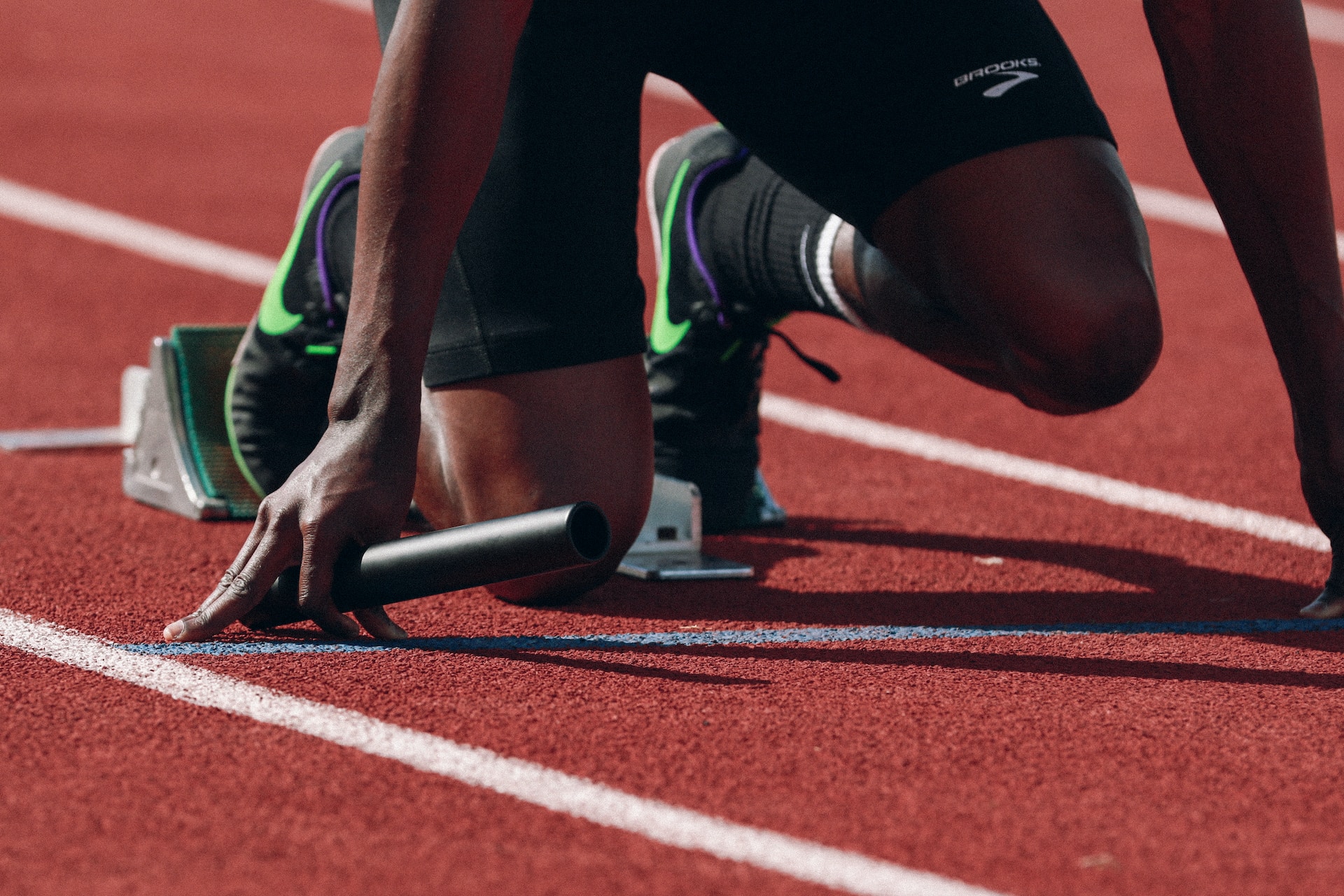In the world of sports, athletes often stand on pedestals, basking in the glory of their physical prowess and outstanding performance. Yet, behind the veneer of success and fame, there hides a less spoken reality. The psychological toll that comes with the elite status, the pressure to consistently perform well, and the intense media scrutiny can, and often does, lead to mental health issues. Today, we will delve into this specific aspect of athlete life: the psychological impact of sports-related controversies and media scrutiny.
The Unique Mental Health Concerns of Athletes
Before we delve into the specifics of how media scrutiny and sports-related controversies can impact an athlete’s mental health, it’s important to understand the unique psychological challenges athletes face.
A lire en complément : How can sports organizations promote ethical conduct and sportsmanship in youth sports leagues?
Athletes, both at the elite and amateur levels, often experience considerable stress, anxiety, and other mental health disorders. This is due to the high expectations placed on them, the constant need for performance improvement, and the fear of injury or failure. Moreover, the world of sports is becoming increasingly competitive, making the mental health of athletes an area of growing concern.
The mental health of athletes is a topic that has gained increasing attention in the psychological and medical communities. Numerous studies have sought to better understand the specific mental health needs of athletes, and scholars have conducted reviews to consolidate these findings and provide useful recommendations.
A découvrir également : How do athletes use sports psychology techniques to overcome setbacks and adversity?
It’s quite common for athletes to experience performance-related anxiety, especially when they are under pressure to succeed. This stress can be exacerbated by the constant scrutiny from fans, coaches, and media outlets, not to mention the impact of sports-related controversies and scandals that can be both personal and professional in nature.
Media Scrutiny and its Impact on Athlete’s Mental Health.
The media plays a significant role in the life of an athlete. It has the power to build or break careers, to raise an athlete to the status of hero or relegate them to the role of villain. This omnipresent media scrutiny can create enormous pressure on athletes that can contribute to or exacerbate mental health issues.
Social media has only added to this pressure, providing a platform for fans and critics alike to directly interact with athletes. While it can bring athletes closer to their fans, it can also lead to cyberbullying, public shaming, and criticism that can be particularly damaging.
Various studies have shown the adverse effects of media scrutiny on athletes’ mental health. For example, a constant focus on their performance, appearance, or personal life can lead to anxiety and stress disorders. Athletes are often hesitant to seek help for these issues, either because they fear the stigma associated with mental health, or they worry about how it might affect their career.
Sports-Related Controversies and Athlete’s Mental Health
Just as media scrutiny can impact an athlete’s mental health, so too can sports-related controversies. Whether they’re personal controversies (such as accusations of drug use) or more systemic issues (like corruption within a sport’s governing body), these controversies can have a profound impact on an athlete’s mental health.
Being embroiled in a controversy can lead to feelings of shame and guilt, which can in turn lead to anxiety, depression, and other psychological disorders. Indeed, the public nature of these controversies, combined with the intense media scrutiny that usually accompanies them, can create a perfect storm of stress and anxiety.
Moreover, controversies can disrupt an athlete’s routine, causing them to worry about their future in the sport and undermining their confidence in their abilities. This lack of confidence can severely impact their performance, creating a vicious cycle of worsening mental health and declining performance.
Help-Seeking Behaviours in Athletes
Despite the unique mental health challenges they face, athletes are often reluctant to seek help. A review of studies conducted on help-seeking behaviours among athletes reveals a worrying trend: many athletes are unwilling to seek help for their mental health concerns due to the fear of stigma and its potential impact on their career.
The idea that mental health problems are a sign of weakness is deeply ingrained in the sports culture. Athletes are often expected to be tough, both physically and mentally, and admitting to psychological struggles can be seen as a failure to meet these expectations.
However, it is important to promote a culture within sports that encourages athletes to seek help when necessary. Mental health professionals, coaches, and athlete’s families play a crucial role in this regard. Moreover, organizations at all levels of sport must work to reduce stigma and promote mental health support for athletes.
Mitigating the Psychological Effects of Media Scrutiny and Sports-Related Controversies
While it’s clear that media scrutiny and sports-related controversies can have negative effects on an athlete’s mental health, it’s crucial to remember that these effects can be mitigated.
Education and awareness are key. Athletes should be made aware of the potential psychological impacts of their profession and be provided with the tools to handle stress, anxiety, and other mental health issues. This includes teaching them how to handle media scrutiny and the fallout from controversies.
In addition, sports organizations must take a proactive role in promoting mental health and providing support services for athletes. This can include providing access to mental health professionals, creating a culture that encourages help-seeking, and implementing policies that prioritize athlete’s mental health.
While the journey to mental health wellness for athletes is a long one, with the right resources and support, it is certainly achievable.
The Stigma Around Mental Health and Athlete’s Resistance to Seek Help
Despite the evident mental health challenges faced by athletes, seeking professional help often remains a hurdle. This is primarily due to the pervasive stigma around mental health issues in the sports industry. Athletes, who are often portrayed as symbols of strength and endurance, may find it challenging to publicly acknowledge their mental health struggles.
According to a systematic review of studies in the field, help-seeking behaviours amongst athletes are worryingly low. Fear of stigma and potential negative impact on their career are the primary reasons for this reluctance. In the highly competitive sports world, mental health problems are often erroneously perceived as a sign of weakness. Consequently, athletes often grapple with their mental health issues privately, avoiding professional help.
This deeply rooted belief that mental health issues equate to personal failure is an erroneous construct that must be corrected. Athletes are human beings, and like all individuals, can experience a range of health issues, including mental health disorders. Coaches, family members, and fellow athletes can play a significant role in mitigating this stigma, promoting a more accepting atmosphere for mental health discussions.
Promoting mental health literacy, providing safe spaces for athletes to voice their concerns, and educating them about the benefits of seeking professional help are vital in changing these deep-seated perceptions.
Strategies to Mitigate the Impact of Media Scrutiny and Sports-Related Controversies
The psychological impact of media scrutiny and sports-related controversies on athletes is undeniable. However, there are effective strategies to mitigate these effects and ensure athletes’ mental well-being.
To start with, athletes need to be educated about the potential psychological challenges they may face. Understanding that stress, anxiety and other mental health issues are normal responses can be a powerful tool. Equipping athletes with coping mechanisms to handle media scrutiny can also be beneficial.
In the wake of controversies, athletes often feel isolated and unsure of their future in the sport. Support systems, including mental health professionals and peer support, can help athletes navigate these difficult times. Sports organizations can also play a pivotal role in providing these support services.
Furthermore, it is crucial to promote a culture of mental health within sports organizations. This involves creating safe spaces where athletes feel comfortable discussing their mental health issues, implementing policies that prioritize athletes’ mental health, and making mental health resources readily available.
Despite the challenges, with proactive measures, supportive environments, and a commitment to prioritizing mental well-being, the psychological effects of media scrutiny and sports-related controversies can be significantly reduced.
Conclusion
The mental health of athletes, particularly under the spotlight of media scrutiny and sport-related controversies, is a subject that requires immediate attention. While sports can provide a platform for athletes to showcase their abilities and achieve great success, it also comes with unique psychological challenges.
The stigma associated with mental health issues often prevents athletes from seeking help. However, by promoting mental health literacy, encouraging open dialogues about mental health, and providing appropriate support, the tide can turn.
Sports organizations must also play their part, promoting a culture that places equal importance on mental health as it does on athletic performance. As we move forward, the focus should not only be on creating exceptional athletes but also on nurturing their mental well-being. After all, even the strongest of athletes are, first and foremost, human beings.











